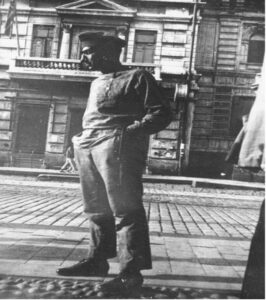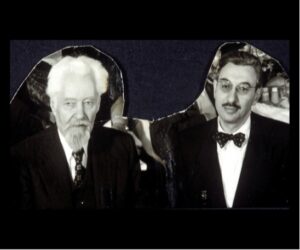
Figure 1B. Boris M. Joffe, father in-law of one of the authors, Dr. Panush, in the early 1900s, probably on the streets of St. Petersburg, where he was born. He was a protégé of and assistant to Viktor Chernov, leader and theoretician of the socialistrevolutionary anarchist party of Russia. Chernov was minister of agriculture in Alexander Kerensky’s Russian Provisional Government and chair of the Russian Constituent Assembly, the duly elected government in the country in a plebiscite held following the fall of the tsardom, lasting until they were deposed by Lenin and the Communists.
What if … Napoleon hadn’t (likely) taken excessive pain medication (likely narcotic) for his thrombosed hemorrhoids on the eve of the epic battle at Waterloo, impairing his leadership and presaging his defeat? How might modern European history have differed?
Royal Hemophilia, Possible Hemophilic Arthropathy, Tsarevich Alexei & the Fall of the Romanov Tsardom
In September 1912, the Russian royal family was vacationing at one of its hunting preserves in the Bialowieza Forest, in what is now eastern Poland, with their five children, including Tsarevich Alexei, the long-awaited heir to the Russian throne.37 Alexei had hemophilia, inherited from his mother, Alexandra, of Hessian royalty, granddaughter of Queen Victoria, whose descendants carried the gene.38,39 Alexei fell against an oarlock with an intense pain in his left upper leg and lower abdomen, completely incapacitating him.40 His condition deteriorated, and he was administered last rites.
The tsarina was a foreigner to the country of her husband, Tsar Nicolas II; she was largely isolated, alone and friendless at the court, trusting few except the dissolute and charismatic monk who had captivated her, Grigori Rasputin. In desperation, Alexandra sent a telegram to Rasputin, to which he responded, “God has seen your tears and heard your prayers. Do not grieve. The Little One will not die. Do not allow the doctors to bother him too much.” The bleeding stopped the next day, and Alexei recovered.
Consequently, Rasputin became the tsarina’s trusted confidant; surely, if he could save her son’s life, he could help her govern Russia while her husband was with his troops at the front during WWI. Russia’s entry into the war and the tsarina’s interim governance of the nation (with Rasputin’s complicity) were disastrous debacles, leading to the fall of the Romanov tsardom.37


